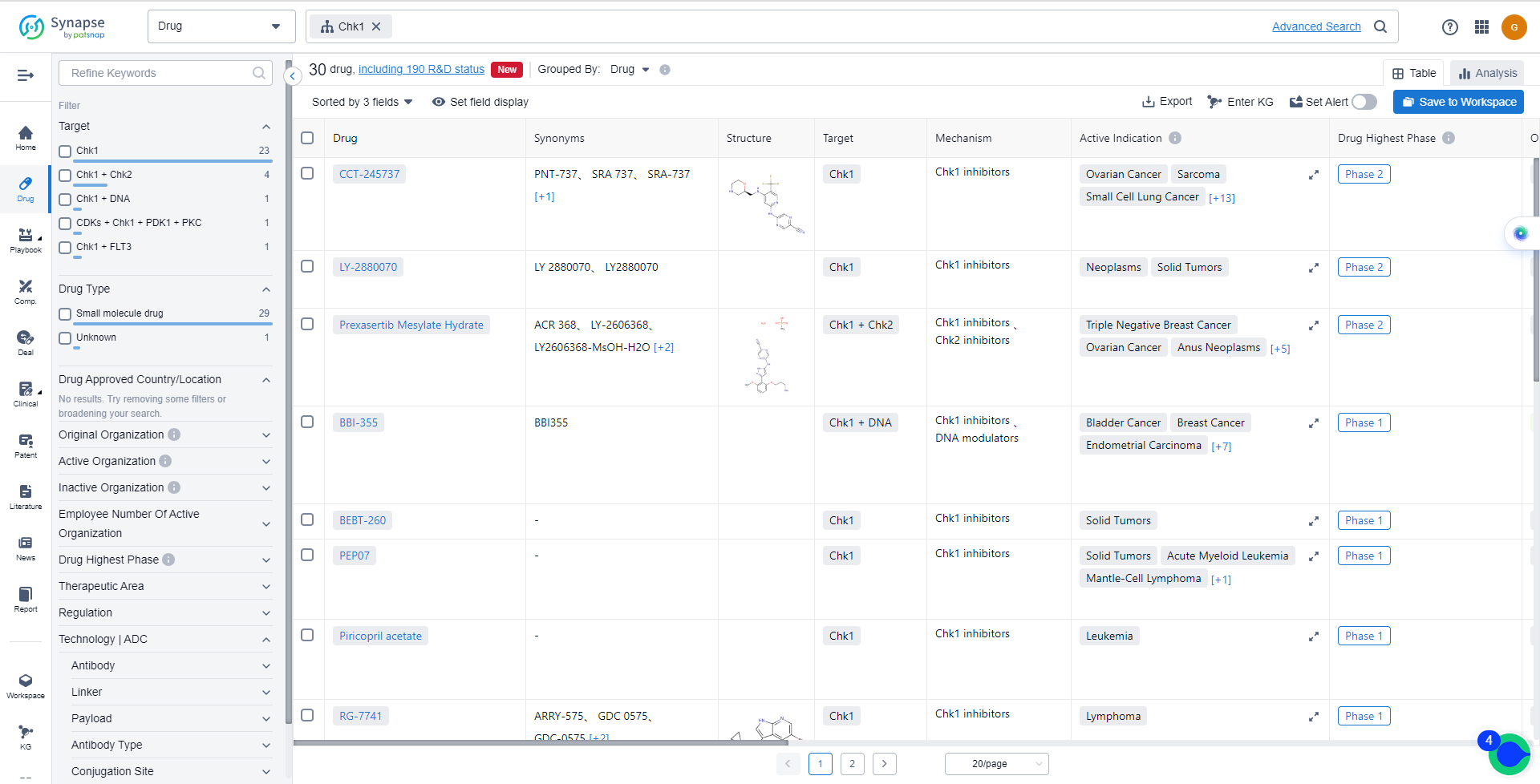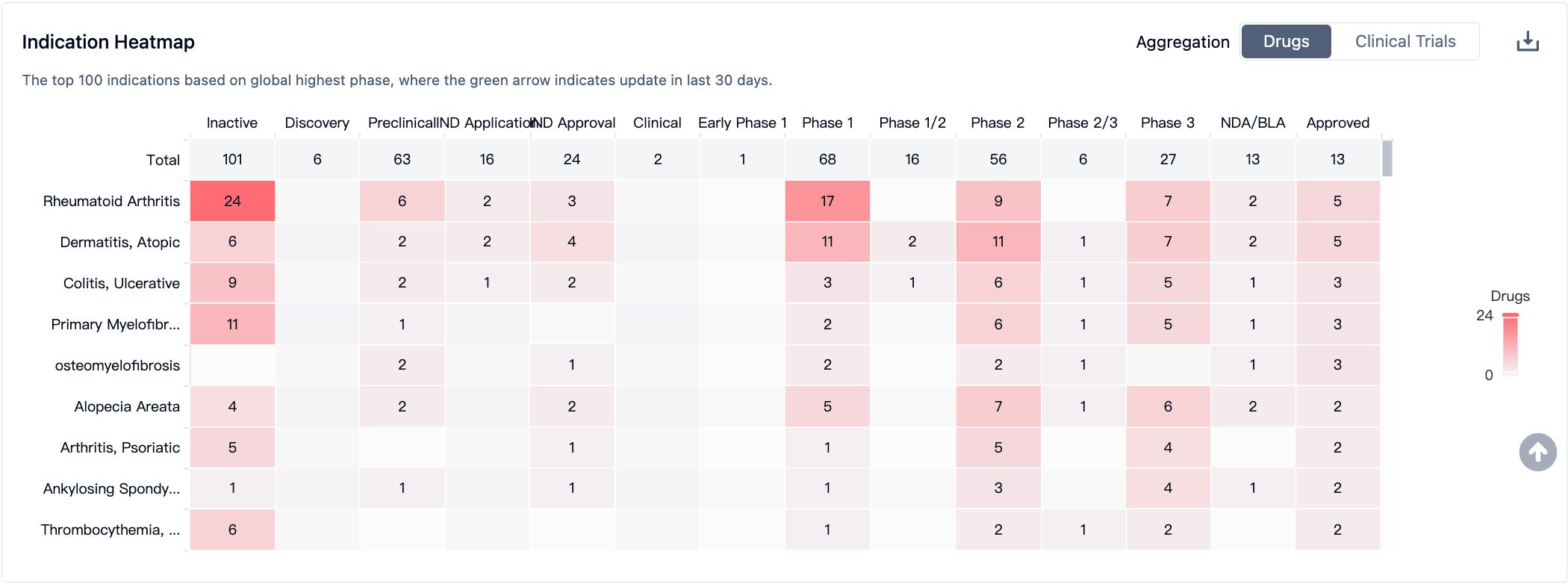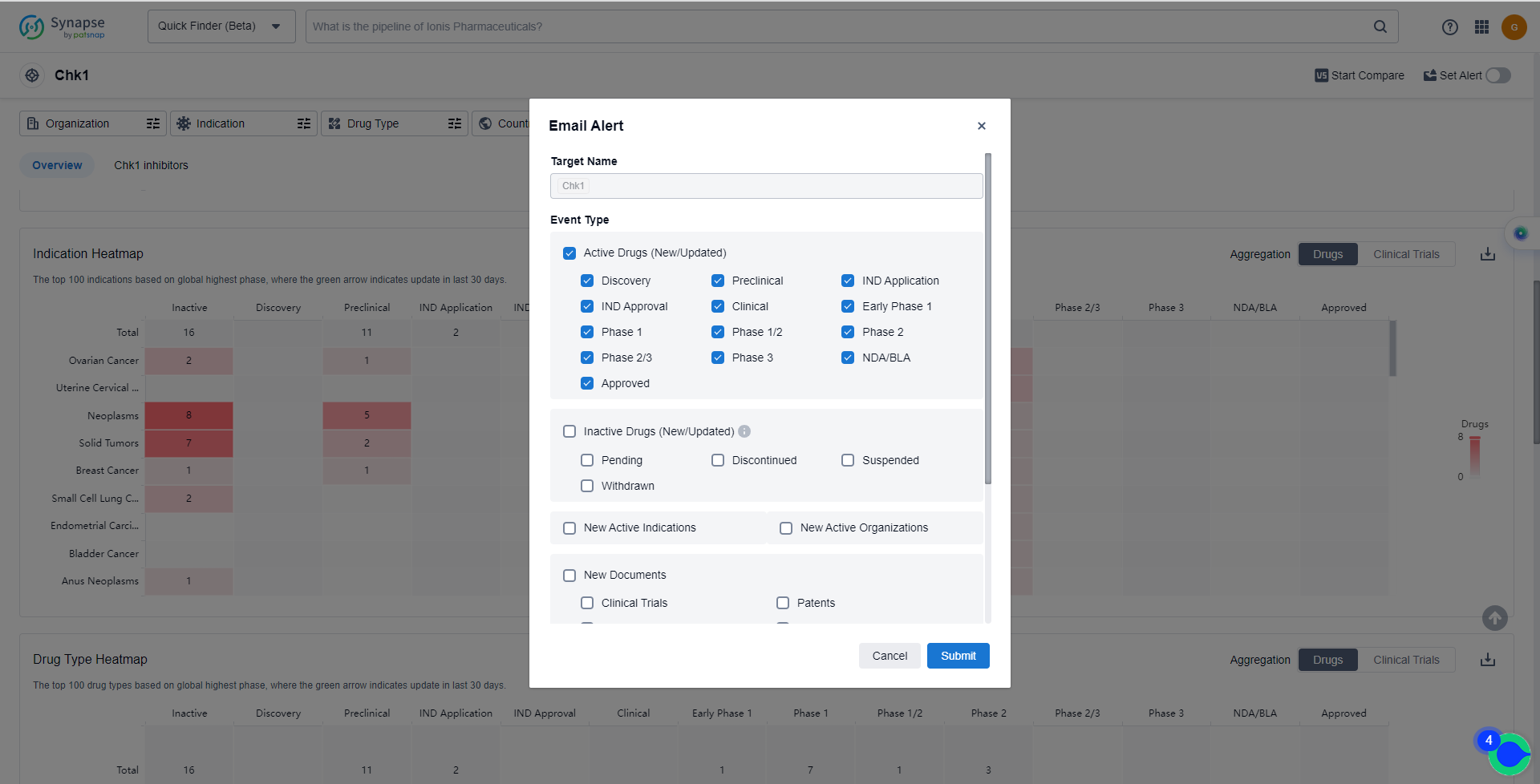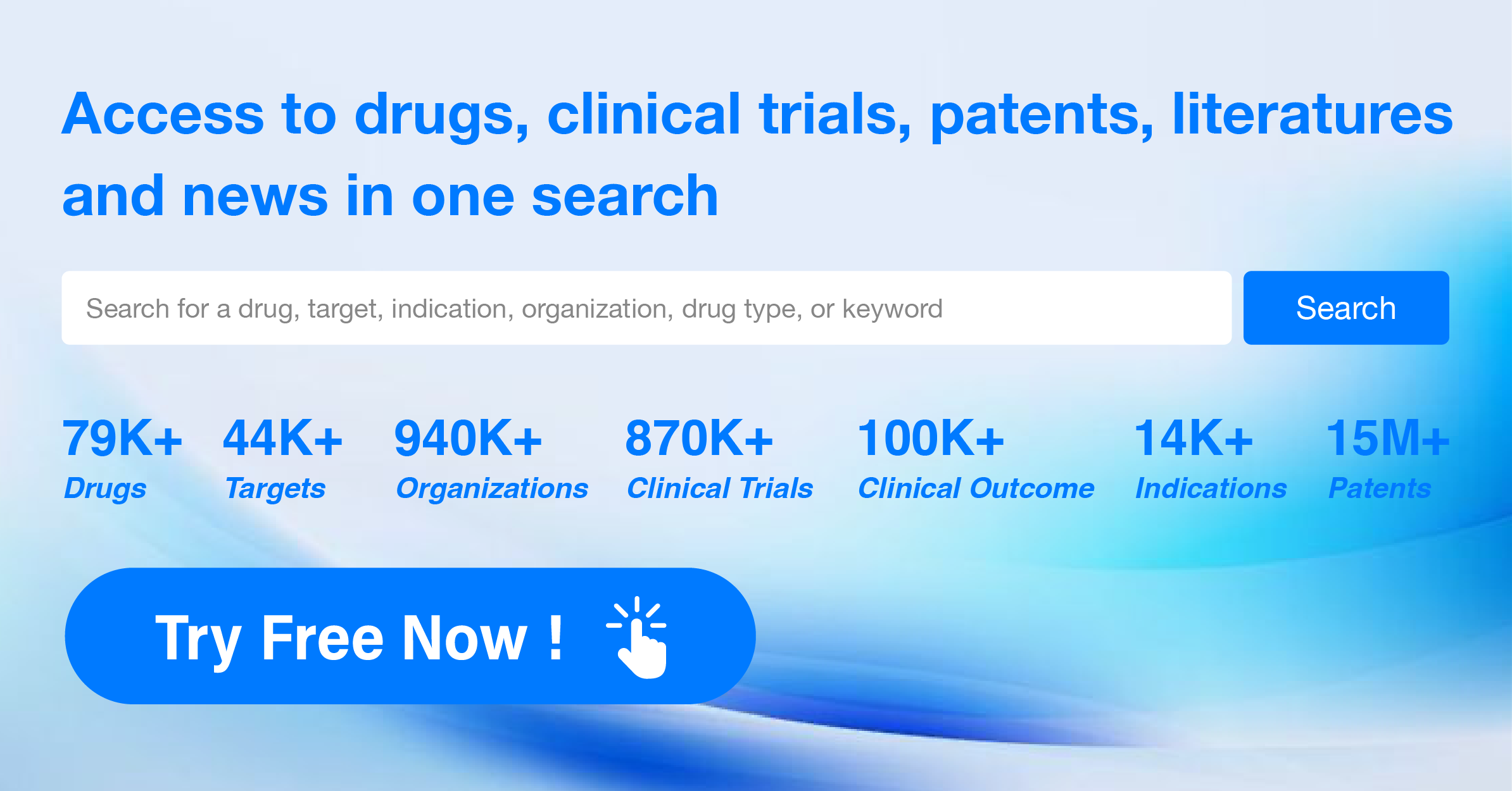What are Chk1 inhibitors and how do you quickly get the latest development progress?
Chk1, also known as checkpoint kinase 1, is a crucial protein kinase involved in the regulation of cell cycle progression and DNA damage response in the human body. It plays a vital role in ensuring the integrity of the genome by monitoring DNA replication and repair processes. Chk1 acts as a checkpoint mediator, halting cell cycle progression in response to DNA damage or replication stress, allowing time for repair mechanisms to be activated. Dysregulation of Chk1 has been implicated in various diseases, including cancer, making it an attractive target for pharmaceutical interventions aimed at enhancing the efficacy of DNA-damaging therapies or developing novel anticancer treatments.
The checkpoint kinase CHK1 participates actively in the DNA damage response initiated by ATR and ATM by phosphorylating and recruiting a series of regulatory proteins. CHK1 regulates the S phase checkpoint by phosphorylating CDC25A, resulting in the degradation of CDC25A and subsequently the reduction in the activity of the S-phase cyclin-dependent kinase 2 (CDK2). CHK1 also regulates mitosis and the G2/M checkpoint through phosphorylation of CDC25C and WEE1. In addition, CHK1 promotes the interaction of RAD51 with BRCA2 during HR by phosphorylating RAD51 at Thr-309. Elevated levels of CHK1 are associated with poorer prognosis, disease recurrence and resistance to therapy, further supporting the therapeutic potential of CHK1 inhibitors.
The current competitive landscape of target Chk1 is characterized by the involvement of companies such as Eli Lilly & Co., Pfizer Inc., GSK Plc, and Baylor University. These companies are actively engaged in the research and development of drugs targeting Chk1, with Eli Lilly & Co. leading in terms of the highest stage of development. The indications for drugs targeting Chk1 cover a wide range of cancers, indicating the potential of Chk1 as a target for cancer treatment. Small molecule drugs are the most rapidly progressing drug type under the current target, suggesting a focus on developing small molecule Chk1 inhibitors. The United States, United Kingdom, and European Union are the countries/locations with the fastest development under the current target, while China also shows progress in the development of drugs targeting Chk1. Overall, the future development of target Chk1 holds promise in the field of cancer treatment, with ongoing research and development efforts by various companies and institutions worldwide.
The mechanism of action of Chk1 inhibitors
Chk1 inhibitors are a type of drug that target and inhibit the activity of the protein checkpoint kinase 1 (Chk1). Chk1 is a key regulator of the cell cycle and DNA damage response, playing a crucial role in ensuring the integrity of the genome. By inhibiting Chk1, these inhibitors disrupt the normal cell cycle progression and DNA repair processes.
From a biomedical perspective, Chk1 inhibitors have gained significant attention in cancer research and therapy. Cancer cells often exhibit dysregulated cell cycle control and increased reliance on DNA repair mechanisms, making them particularly vulnerable to Chk1 inhibition. By blocking Chk1, these inhibitors can induce DNA damage and prevent cancer cells from repairing their DNA, ultimately leading to cell death.
Chk1 inhibitors have shown promise as potential anticancer agents, both as single agents and in combination with other therapies. They have been investigated in preclinical and clinical studies for various types of cancer, including solid tumors and hematological malignancies. The goal is to exploit the vulnerabilities of cancer cells while minimizing the impact on normal cells.
It is important to note that Chk1 inhibitors are still under active research and development, and their clinical utility is being evaluated. While they hold promise, further studies are needed to optimize their efficacy, safety, and potential side effects.
Catalog of Chk1 Inhibitors
The currently marketed Chk1 inhibitors include:
For more information, please click on the image below.
What is the purpose of using Chk1 inhibitors?
Chk1 inhibitors have shown promise as potential anticancer agents, For more information, please click on the image below to log in and search.
How to acquire the most recent advancement in Chk1 inhibitors?
In the Synapse database, you can keep abreast of the latest research and development advances of Chk1 inhibitors anywhere and anytime, daily or weekly, through the "Set Alert" function. Click on the image below to embark on a brand new journey of drug discovery!








